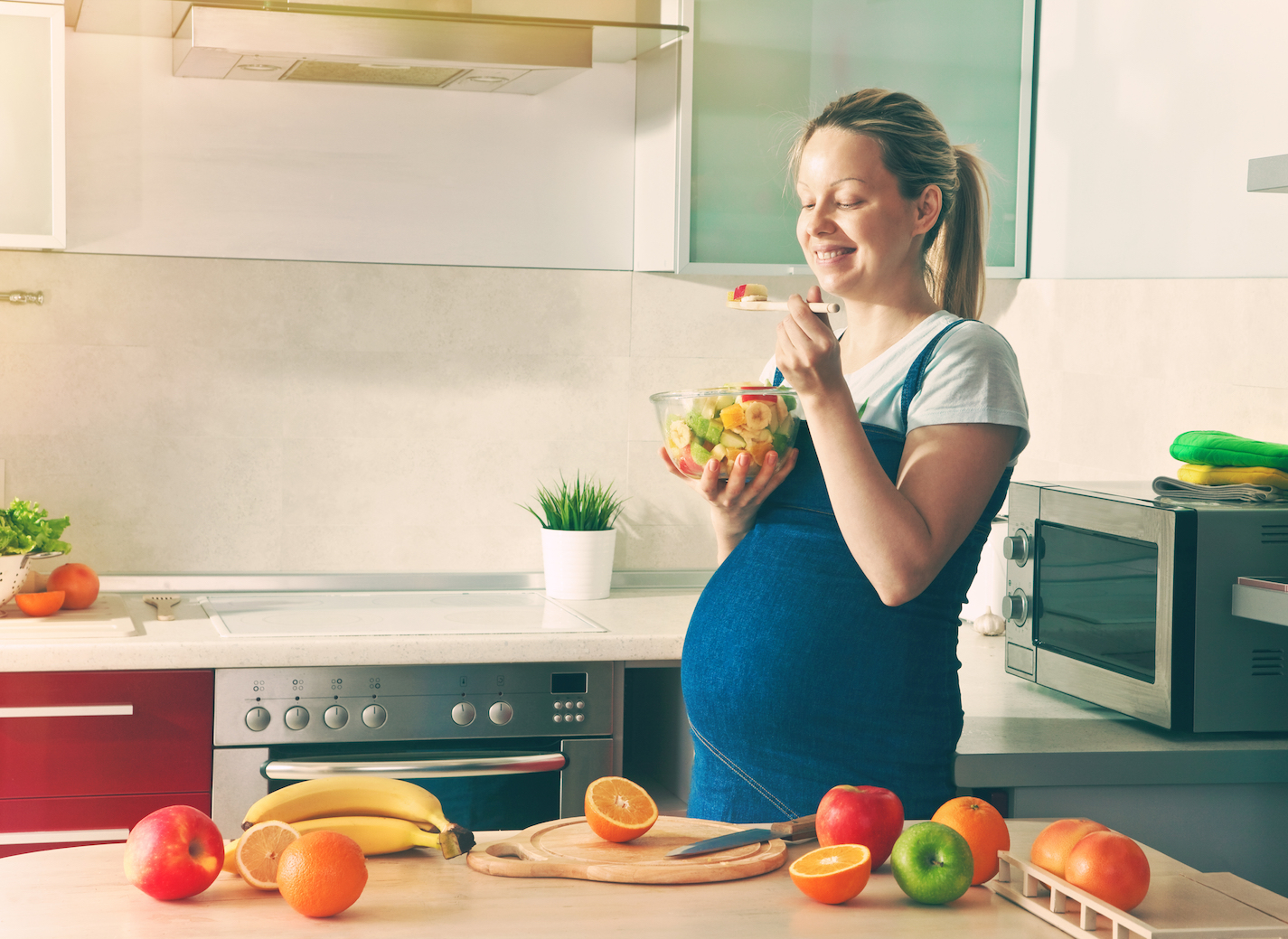
What you eat while pregnant can change your baby’s gut
A new study published by BioMed Central has revealed that a woman’s diet during pregnancy has an impact on the microbial content of her baby’s gut. The researchers also found that this effect may vary depending on the method of delivery.
“Our study demonstrates an association of a readily modifiable factor, maternal diet, with the infant gut microbiome,” said study lead author Sara Lundgren. “This knowledge may be key for developing evidence-based dietary recommendations for pregnant and lactating women.”
Lundgren and her team at Dartmouth-Hitchcock Medical Center analyzed the gut microbiomes of infants at six weeks old and found that they consisted primarily of Enterobacteriaceae, Bifidobacterium, Bacteroides, and Streptococcus.
Among 97 newborns that had been vaginally delivered, the researchers identified three distinct clusters of gut microbes. Cluster 1 was found to contain an abundance of Bifidobacterium, cluster 2 had high levels of Streptococcus and Clostridium, and cluster 3 had an abundance of Bacteroides.
For the 48 babies delivered using cesarean section, the composition of these clusters was very different.
The study findings also suggest a link between the diets of the mothers and the gut microbiomes of the infants. When the mothers ate more fruit and had a vaginal delivery, Bifidobacterium was found in lower levels. On the other hand, this bacteria was found in higher levels among babies born by caesarian when mothers consumed more red and processed meat.
According to the analysis, the odds of being in cluster 2 were 2.73 times higher for each additional daily serving of fruit consumed by mothers who had a vaginal delivery. The odds of being in cluster 2 were 2.36 times higher for each additional daily serving of dairy when the babies were delivered by caesarian section.
“We analyzed infants delivered vaginally and by cesarean section in separate groups due to our previous knowledge of the transfer of maternal microbiota to the infant that occurs during vaginal delivery, but not with cesarean section delivery,” said Lundgren.
“We expected results to differ based on delivery mode, but we were surprised to find that the abundances of some microbes were increased in association with maternal intake of a food group in one delivery mode group, but decreased in the other delivery mode group.”
The researchers pointed out that this study is strictly observational and has some limitations. For example, it was focused only on mothers and infants from Northern New England, which has a relatively homogenous population. The researchers also explained that the effect identified through their analysis may be influenced by the mother’s diets while they are breastfeeding.
The study is published in the journal Microbiome.
—
By Chrissy Sexton, Earth.com Staff Writer













